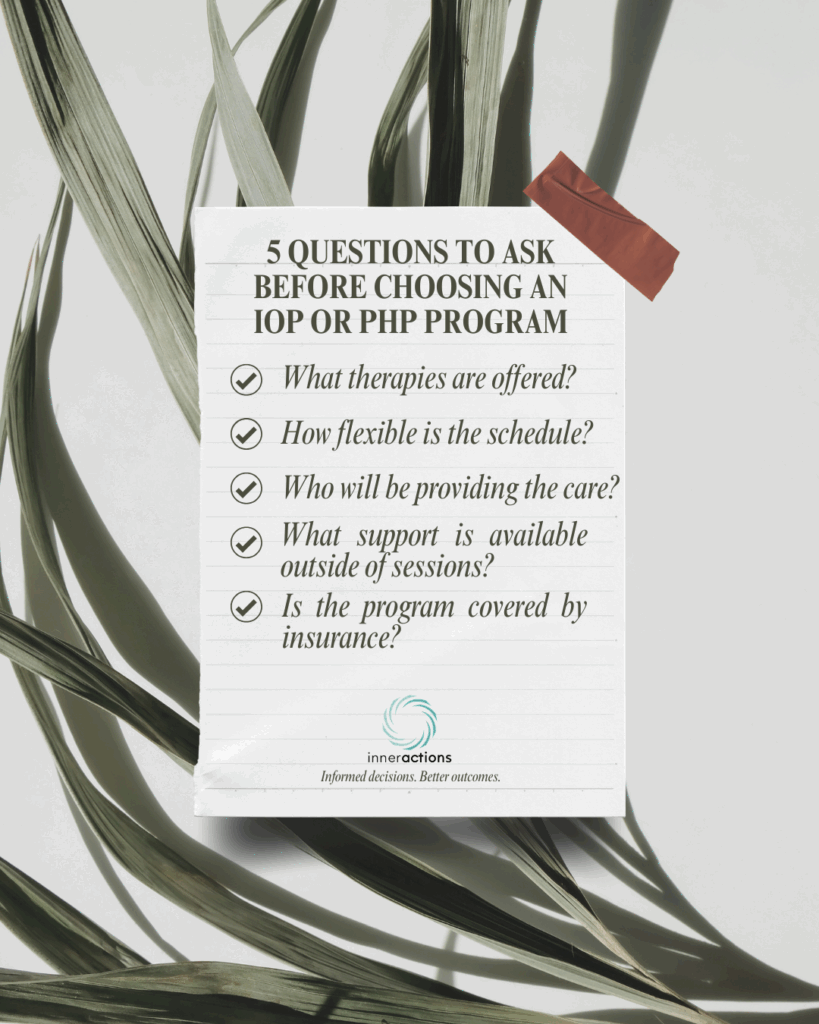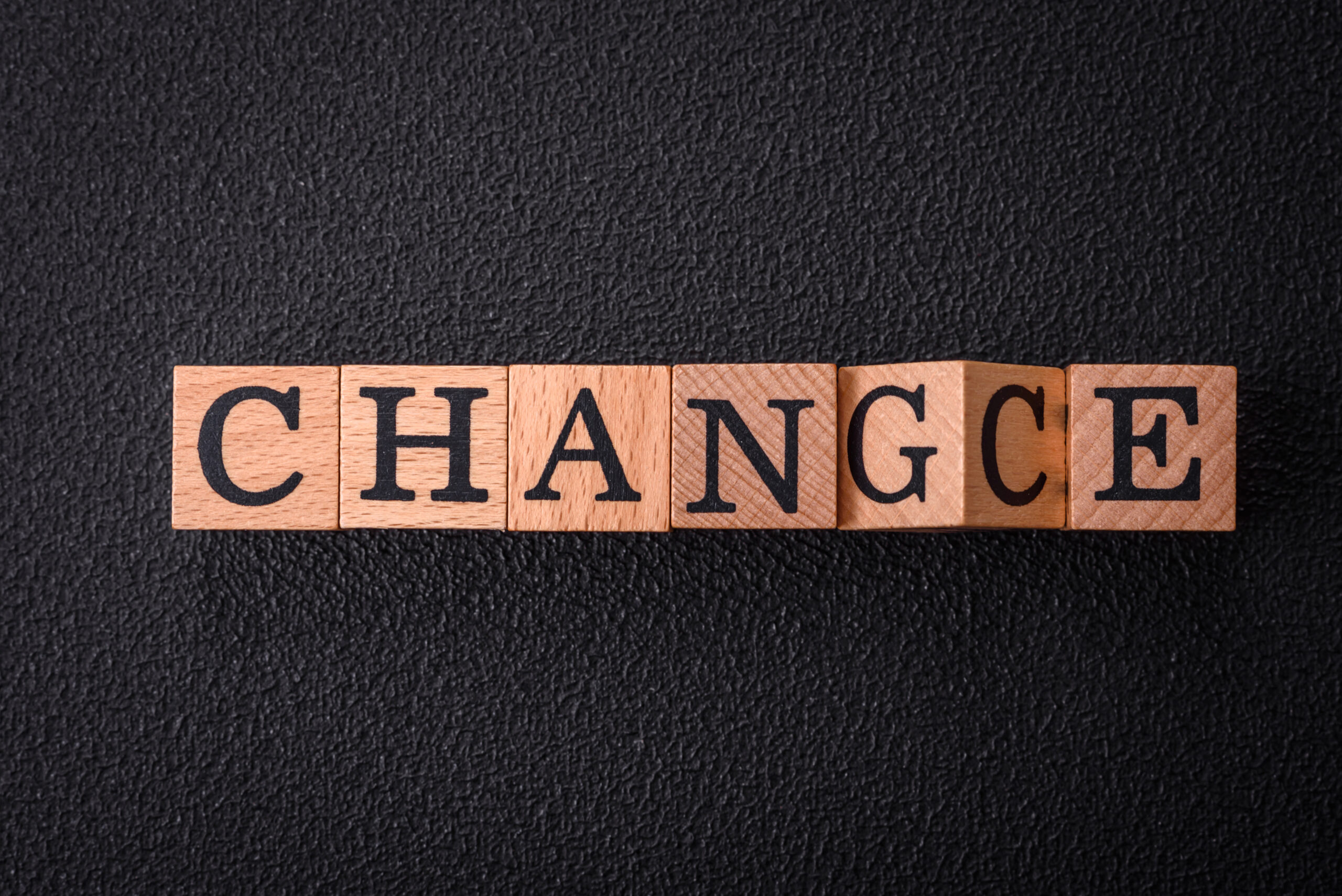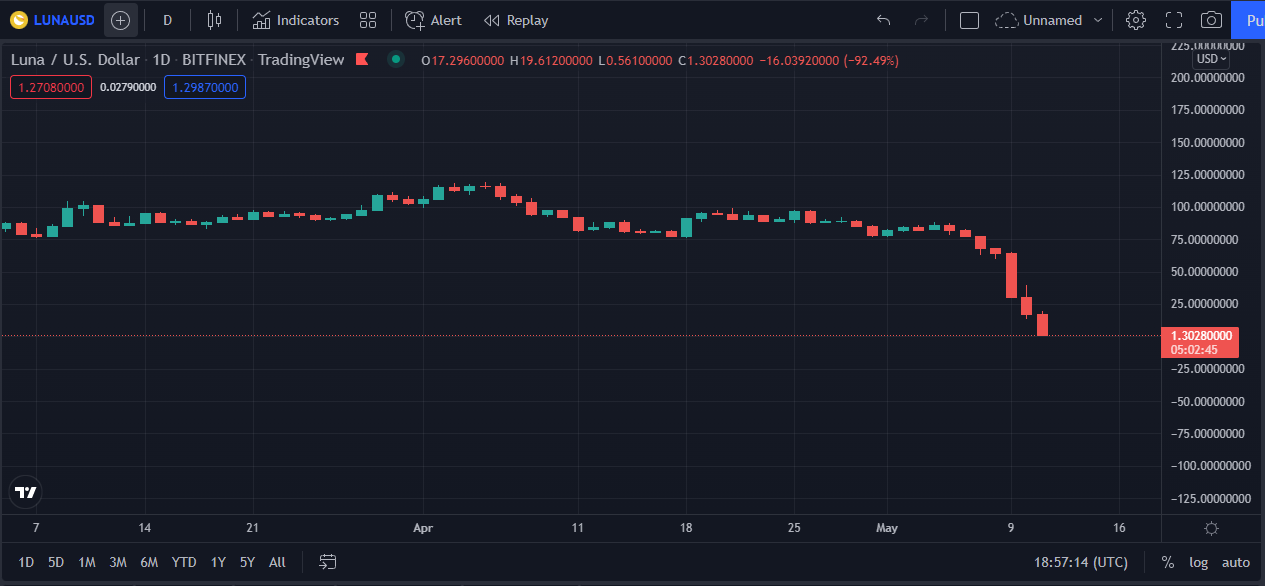Hello everyone and welcome to the GOT Mental Health podcast. I am your co-host Rachel Cove. I am a multi-passionate entrepreneur, author, artist, mother and Certified Recovery coach.
I’m your co-host Arthur Mogalevsky, entrepreneur, girl dad, animal activist and owner of AM
Healthcare, a premier substance abuse and mental health treatment program.
With the collective experience of 21 years working in the mental health field we are excited to bring to you a safe and fun place to talk all things mental health. We will be interviewing experts, thought leaders, entrepreneurs and professionals in the entertainment industry to better educate, inform and inspire our community to have positive mental wealth.
RC : Welcome back everyone to the GOT Mental Health podcast today. Our incredible guest is Mary Gordon. Mary is a master’s level licensed advanced alcohol and drug counselor, an internationally certified advanced alcohol and drug counselor, and a skilled dance movement facilitator. She works with professionals and organizations on developing programs focused on family recovery from addiction. After a move across the country Mary continued her career at the world-renowned Betty Ford Center in Rancho Mirage, California where she worked as a counselor and most recently as the Director of their critically acclaimed family and outpatient program. In this role Mary expanded and developed programs focused on resiliency and recovery. Mary retired in 2015 and established Inner Direction Recovery, which allowed her to broaden her scope of practice. Mary provides counseling and coaching to a variety of clients, including family members who have a loved one struggling with substance use, individuals embarking on a sobriety journey and people who need to reinvigorate their approach to their own wellness. Mary provides Women I Am renewal retreats, a spiritual experiential process based on a feminine perspective of recovery. In addition to working directly with families Mary provides presentations, workshops and staff renewal retreats to professionals and organizations. Welcome to the show, Mary Gordon!
MG : Thank you so much Rachel!
RC : Our schedules have finally aligned where we can make this happen.
MG : Yes thank you so much. I’m so glad to be here and thank you for the work that both of you do in this field. We’re all in this together.
Lori : We are in it together and thank goodness, I think I can speak for you as well, we love it, we absolutely love it. And I gotta tell you, Rachel just read your bio, it’s impressive.
MG : Oh and thanks, yes we just keep hanging in there and as we talk with each other today, I know you’ll have stories too, but some of the stories of the different families in rural Maine as well as the families out here and the continued effort for the wonderful people that we all meet that are challenged by mental health issues and addiction issues and certainly during this pandemic, wow, another big hurdle to overcome and start to heal from that isolation, etc. So here we are.
RC : Here we are, and I can’t wait to get into this discussion because a lot of families listen to this podcast. Lori has been working with families for over 30 years, I’ve worked with families, I’m a part of a family, we all come from a family, and I want to be able to provide families with tools and with skills on how to create more harmony and positive change and long-lasting effective change, not just like short-term change but long lasting change where people can be excited to be in their family again. I feel like there’s this negative connotation now to family. I mean even think about the holidays…
Lori : Uh I’m going back to see my family…
RC : That’s right, that’s right. I mean, wouldn’t it be nice if we could really create an environment again with family where it becomes a really positive loving happy harmonious experience?
MG : Yes and may I interject something here about one flashback of this experience at the Hope House in Bangor Maine which was a treatment center for people on the street – homeless people – “three hots and a cot.” Basically they did the back and forth. When I first started working there one of the gentlemen that (and I can’t remember his name right now) took me to where the clients that we were going to be working with lived and he said, “Get your big warm coat on and your boots Mary” (because remember it was Maine) and let’s go out. And we went out and he took me to a place called The Pines and there were the tents and the different things for homeless people and he said “So keep your expectations low and your acceptance high and remember that they all come from a family.” It gives me goosebumps to think about it now because that was my early training in substance abuse counseling. I had moved from being a teacher in schools in rural Maine to then my own recovery and then getting my Master’s Degree etc. like all of us, we have a journey in our education and support. And my first family group at the Hope House was a circle of all the clients there and of course most of them were not connected to their families obviously at that point. And I remember this one gentleman I started in as if you know I’m talking like I know what I’m doing – here I am, you know I’m a new counselor and I’m I’m talking about families and of course it strikes a chord, a heartache and a pain for clients that are living in the streets and living in tents and so forth. And anyway, I said whatever I said at that point, this guy got up and we were in a big circle and I was the only counselor in that big circle – I think there might have been 20-25 clients there. He stands up and he picks a chair up and he throws it across the room and you know I stopped. I paused and I remembered not only my training but the heartache that it is for anybody who loses their family. I said, “What can we do to support you right now?” and he started to cry. You know it now but sometimes what we would do of course we keep them safe but sometimes what we might do is criticize or judge or say “What’s wrong with him?” and then do a big diagnosis of this guy. This guy had lost his family due to his addiction due to his mental illnesses and he was living in the street and he’d lost everything so of course he would be enraged and at a loss. So that was very enlightening for me Rachel, to hear and see and be a beginning counselor in this field. From then on I really learned the richness of that experience really helped me when I moved across the country. I mean it was like what a contrast working there and then I also worked for the state and then moving out to Betty Ford Center and doing the work there which was a whole different clientele, so quite a change
Lori : Oh yeah and it’s interesting – at Betty Ford you had the families for the most part, I think if I remember right, at Betty Ford they have to participate – it’s not even a choice, so the families are nowhere around and actually what I’m wondering about and I don’t know how how kind of deep you want to go into this – in that environment did you see the homeless creating and developing their own family systems?
MG : That’s an excellent question Lori, because first of all (and I’ll switch to the Betty Ford family program where no, they were not required to go but we’ll talk about what that was) but going back to Hope House, no they had no family so they had created their own community of course and their own survival skills and so we created within the Hope House and we had regulars that would come in, they’d come in, they might stay clean and sober for 90 days, sometimes people made it six months and one of the counselors there who worked there had been a homeless person and he stayed clean and sober and then he became a counselor he got his license and became a counselor there. But what we would do is help them to see that community is family too and how to reconnect with a family that is sort of disowned you and said we don’t want to have anything to do with you, now some of them were able to reconnect maybe not in the way that was sort of you know how we would think of it as living back with them or reconnecting and meeting with them but in some meaningful way to them they were able to. Some of them, if they stayed alive. My friend George, the counselor that I said that had been a homeless person, I had just I call it my adolescent purchase – I had just bought this second hand Toyota which had rear-wheel drive – not a good thing in Maine to have rear-wheel drive because of course the snow and the ice. But anyway he was going to go talk to a school department about the issues of addiction so he said to me, “Yeah Mary, I don’t know how I’m going to get up there,” and I said, “You can borrow my car – I’ll give you the keys.” He looked at me stunned because you know he’d been homeless. Here he was working as a counselor just getting his life back together getting a driver’s license but not having a car and here was someone saying, “You know, yeah you can use my car, I trust you to do it.” He could not even believe it and he had to go to Northern Maine and talk to the kids. Then he came back and gave me the keys back. He said I could have stolen your car. I said, “I know, but I trust you,” and that’s that whole thing that we all get. We start to help them to build trust with each other and then the family started to trust that they’re going to do what they say they’re going to do, so that’s a long road.
RC : Yeah I’d like to start from there so everyone comes from a family, we are all families, families have their ups and downs. Do you think that in our society the pressure to look like you have the perfect family causes some serious mental health issues?
MG : Yes, let’s just talk about what I’d like to say about that is – ethnicity and cultural issues are something that of course we need to be very competent with because that’s going to be different for everybody and families are different for everybody. One of my favorite quotes from Alice Walker’s book, The Temple of my Familiar was, “If you want to find out everything about yourself, find out everything about your parents, your grandparents, find out the kind of cars they liked, what kind of food they liked, all of that.” And the connection back to them for us and working with families is slow steady progress. First of all the education that we do to teach families that they didn’t cause this illness, they can’t control it and they can’t cure it but they can cope and they can learn new ways to connect but your question about looking good – yeah we used to see a lot of looking good families that would come into family program at Betty Ford Center. When I say looking good, they wanted to not talk about how hurt they were, how sad they were, how scared they were, how angry they were. Now here their patient is in treatment or the patient is getting treatment either at Betty Ford or someplace else because we didn’t just have family members from Betty Ford Center, we also had other treatment centers that didn’t have a family program that sent their family members there. But that connection was broken so one of the first things I talked with my staff about and we really over and over again in our team meetings would talk about and that is let’s not label our families. Let’s not pathologize them. Let’s talk to them as if they are real people with real hurts and pains and real skills. Some of these skills don’t work when it comes to recovery so how are we going to do that? So you know after the first opening circle that we would have at Betty Ford people would talk about – the three things that they talked about was 1, who are you here for, 2, what one incident that during their addiction that impacted you, and 3, what would you like to get out of a family week? So we put it back on them for the opening Circle and some people just were so relieved to have a family member or their patient in treatment that they wanted to look good like you’re saying – “oh everything’s fine now, they’re in treatment,” instead of “well I’m I’m so sad” or “man I’m so glad they got here” or “man I’m so pissed off at them.” It’s really a mixed bag Rachel of looking-good families and families that are obviously at the point where they’re really kind of falling apart. I like the falling apart families too because what they’re doing is they’re being real, their heart has been broken, their their trust has been broken and they need to be lifted up and and given some skills.
RC : Yeah and I think it’s important to to see that everyone has a different story and I guess I speak to the families that present like everything is okay because I’ve worked with a lot of people that come into work or into some type of community and they are smiling and they say “I’m doing great, how are you Bob?” “oh I’m doing awesome, how are you? oh I’m fantastic” and then they’re going home and they’re drinking themselves to death, or they have an inability to connect with their kid or they’re making millions of dollars but they literally have no idea what their kids passions are. They’re killing themselves and I want to be honest about that. I mean suicide rates right now are so high especially since Covid and we have to we all want to love our families, we all want to have connection with our family where we are innately designed to connect, especially with our family. So how do we restore a sense of connection in a family where there has been substance abuse, where there has been codependency, where there has been sex addiction, where there have been eating disorders, where there have been mental health issues – what is the first step to restore a sense of connection?
MG : Well, I think in the case of an organization that has some kind of a family group (we had the gold standard at the time of five days with families – five days with just the families there. I haven’t heard of that recently I don’t think any place has the luxury of that anymore), I think the starting point is the communication and being able to sit down with the families and start with communication skills with them and teaching them how do I talk about my feelings, giving them a specific up. We used to call it the feeling formula and I’m sure you use something like this – “I felt sad when you relapsed again because it scares me to think I’m going to lose you and I wish you would get help for your alcoholism or your drug addiction.” So the person who the family member who’s speaking from using I-messages and using feeling language and non-accusatory once they learn I’m telling you once the family members start to learn that and start to practice it it does make a difference and I’m sure you’ve seen it too where that little communication starts to build trust.
Lori : Well it’s interesting – so I think there are a lot of families that can start there and that’s where it starts. I also see a lot of families where there’s a step that has to happen before that where there has to be the identification. There’s an issue there. You’re talking about the father that doesn’t recognize and I think that a lot of times I don’t even know that they even know there’s a problem, I don’t know that they know they’re disconnected. There are some that do, clearly, but again depending on culturally where you come from and how you are brought up… “my job as a father, the way I connect is to provide for” – that’s the old school. I don’t know that they’re always aware that there’s a disconnection, that there is a problem. So first and foremost I think bringing that to their awareness. You asked a question the other day when we were kind of talking about this is if it’s denial and I don’t always even think it’s denial, I think it’s just being unaware.
MG : Yeah I like that Lori, I like what you’re saying about that. Okay so if we don’t want to use denial we can use unaware. We can also talk about the fact that what you just described – let’s say culturally – because I work with different cultures in different settings, not just at Betty Ford where for instance it was the Native American culture back in Maine I did some family work on the island with the Penobscot Indians. Now first of all, it was very, very different for me as a white woman to go in. I had to get permission from the chief and the whole council to go in and then I had to talk about my perspective and I had to of course acknowledge that I’m not going to know what native traditions are and of course study some of that. But the awareness that you’re talking about is when a family member is not aware of us as working with them, as counselors, as therapists, as coaches is to really very tenderly, not try to break that awareness but gently invite them to explore in what way they see their loved one, what has happened with their loved one that they’re concerned about. And then that opens up something. “Well I can talk about my son who used to be really a very punctual person and he was a hard worker but I don’t think he has a drug problem or I don’t think he has a mental illness or I don’t think he has an alcohol problem but at least the door has opened a little bit to the parent recognizing that there is a behavioral change that they’re concerned about. But they’re holding up that protective wall that you talked about Lori, they’re holding that up and they’re saying “I don’t know about this, it’s scary.”
RC : It is so scary and how much more vulnerable you can get than doing work with your family and I think one of the things I wanted to ask you was a lot of parents come into treatment programs and their kids are the ones that are in the programs. How do you take responsibility as a parent for what you’ve done to contribute to the behavior or the substance? How do you start to acknowledge your own contribution and get out of this – whether it’s denial or being unaware – I think there needs to be a focus with families that everybody plays their part, everyone is playing a part in the system correct? So how do I start? How do you start to teach parents or family members to start to see how they’ve contributed to the substance abuse issue? Does that make sense?
MG : Well what I would do would be reframe that a little bit because one of the things that we see is that either people come in full of shame – the family members full of shame, or the other end of the spectrum is they’re shameless – they don’t experience themselves as in between being human. So the first order for us as counselors and coaches and therapists is to remind them that they did not cause this illness, they can’t control it, they can’t cure it but they can cope. But their coping mechanisms need to be different from what they’ve done. They can’t yell and scream and change the thing because that will just drive the person away but I stay away from blame. When you say “contribute”, what I would say about that (again, language is so important) is – “In what way did you feel yourself stuck repeating the same thing over and over again with your loved one who had an alcoholic drug problem or mental illness?” In other words every time they came home did you yell at them? Every time they were late for something, what did you do? In other words, have them look at their behavior without blame because it was the best they knew how to do during the circumstances of their life. When you know something different you do something different.
RC : Not always though. I appreciate you bringing that to my awareness that it’s important to have a different language around that because I don’t want parents to feel like they’re the ones to blame because I know even as parents – I’m a parent – it’s the first go-to is I’m gonna guilt myself for something that happened with my kid. So I love how you said that about gentle language.
Lori : Yeah I think too which a lot of families resist going to treatment for their family members is because parents especially are so worried about being blamed – I mean, you look at all the old films and TV and books everything goes back to – in a therapeutic setting – going back to the mother, or the father, but oftentimes a mother. And that parent is now going “Oh God, okay you’re going to therapy, I know it’s all my fault.” So oftentimes they don’t want to engage and so I think it’s like going back to what you were saying Mary, I think it’s really important to help support the family as well. But also getting everybody to take a look at what their part is. It’s looking at the system, the family system, and what is everybody’s part? How do we unknowingly perpetuate the system?
MG : So for instance how we unknowingly do this is one of the really important pieces of the family week at Betty Ford was the two days when the patients would come over and join the family. They’d participate in a lecture and the lecture would be on family systems and how everybody adjusts to addiction in the family – I’m sure you’ve seen that model before – you probably use some of that. And then they go into small groups and in the small groups each patient is with one of the family members, and if they have more than one family member they move to a different group. But let’s say they have one family member they’d be in that group and each one, the family member and the patient would talk about from the I-language, just what you’re talking about Rachel, “When I yelled at you and blamed you for… [fill in the blank] I really pushed you away and then of course I didn’t cause you to pick up a drink or a drug but that was that person’s go-to – the drug or the drink was the solution. And then the alcoholic/addict would listen and then they would also talk about what they did – “Yeah, every time this happened I would use and I would be mad at you, you didn’t bail me out of jail and I’d be mad at this…” and so forth. So everybody just owned up to their own behavior, what was going on with them at the time and then they would come to, “Okay, now we need to do something different,” and so now as a patient, I’m learning at interactions, I’m learning how to communicate better with you. And then the family member: I’m learning at the family group or the family week or whatever – I’m learning some new skills about how to communicate. Now of course I’m saying this as if this is sort of the ideal but we’re hoping that families can go away with some skills that they can immediately put to use and of course to support the community which we always recommend. We had Al-Anon come in and talk to the family members about what the participation in Al-Anon was. Oftentimes we refer family members, especially if there were a lot of things, going on to a family therapist to also work on other issues because you can’t get it all done in one week obviously.
RC : Yeah I love what you said Lori and I love what you’re saying Mary – I didn’t see it that way – that parents often avoid treatment because they don’t want to be blamed. I didn’t ever see it that way. So I think how I was trying to kind of phrase it was if parents and if someone does something that hurts another person – so if there’s a system and like you said approaching gently, but I think a lot of these kids or a lot of people who are in romantic relationships it’s like they want to say, “Hey your behavior hurt me,” so how do you teach people to communicate without getting defensive? Without people running out the door, without family screaming at each other, or Mom going, “Why didn’t you do that? That was your dad and you know I’m so busy with work how am I supposed to know how to do this? I’m the one that’s working all the time…” there’s so much avoidance of the truth because people are so defensive.
MG : Yeah because people’s hearts are breaking.
RC : Right, so how do you deal with broken hearts?
MG : Yeah, well you know people are going to get defensive. It’s hard to say to somebody but after people are in recovery for a while they can see it’s not personal what somebody’s doing to me – an act of anger or pushing somebody away (not physically, I’m not talking about abuse) but pushing another family member away in words or actions is not a personal thing – it’s because they’re hurting. That takes a lot of inner work on the part of the family member and of course it takes a lot of inner work on the part of the person who’s recovering but I would often have patients come up to me after I would do the lecture on the family for a couple hundred people that were patients that were there and talk about all the things that we’re talking about here and inevitably after the lecture it wasn’t always men but sometimes it was men how can I get my wife to come to family weekend? How can I get her to go to Al-anon? How can I get her to trust me? And I said “Well you know what, you’re not going to get her to trust you. Good luck with that! How is somebody, after years of drinking and drugging, going to trust you? They’re not going to trust what you say – they’re going to trust what you do. So if you show up for your life and show up for the life of your family they’ll begin to trust you but it’s going to take a long time. It’s not right away.” I can remember this one particular patient who was talking about “Well, I’ve just done 60 days here at Betty Ford Center and I’m sure I’ll be all right now.” It’s the sort of fantasy of going to treatment and now everything’s okay but the family is kind of left behind. My daughter who has worked with children in the children’s program – she used to always put it in the sense of – there’s different people entering recovery at different stages and ages. So let’s say the husband goes home and the wife doesn’t go to Al-Anon or doesn’t you know get any kind of therapeutic help, but he still goes to meetings and he still does some follow-up counseling or goes back to your place for aftercare and is doing the deal but the wife is not ready yet or she’s not willing yet but slow but sure usually family members will get on board with encouragement from others, not necessarily the other family members. But that’s inevitably what people want – to skip off into the sunset and live happily ever after – but it doesn’t happen that way.
Lori : Right, and getting back to your question too – I think a lot of times with the families a lot of it’s going to be education, helping them to understand also the difference between behavior and the essence of a person, who the person is. Somebody’s behavior when they’re drinking and using versus who they are when they’re not, and really helping them to understand the difference. What we were talking about in the last hour is survival and helping a family member understand that when the addict in the relationship strikes out they’re striking out because they’re trying to survive right now – they’re trying to survive in their addiction (RC: that’s so beautifully said!) and so then getting into what you said – it’s not personal – it feels personal but it’s not personal.
MG : Yeah and that does not mean that the recovering person who just went to treatment can get away with any behavior that they have. They have to be accountable for their behavior – just because they’re going to an AA meeting on a regular basis and they’ve got a sponsor and then maybe they’re doing some outside therapy and so forth so that does not give them license to come home and shout and holler at their wife, their spouse, their kids and say “Well I’m in recovery, I’m okay.” We don’t excuse that kind of behavior. They’re accountable for that behavior.
Lori : That makes sense. What we in old school called the dry drunk – the person that’s not drinking but they’re not actually changing behavior, they’re not changing reactions and responses.
RC : So for the people that are leaving the treatment center and they say how do I get my family to trust me again? What would you guys say? I’ll start with you Lori
Lore : Well, I would go back to what Mary was saying. This isn’t an overnight thing. “You know you’re gonna you have to be patient, know that you’re gonna have to change behaviors and you’re gonna have to be consistent.”
RC : I think consistency is key, wouldn’t you agree Mary?
MG : I think I consistently believe what they do, not what they say.
RC : And also though, I think for the families, the families are healing too – they’ve been a part of a system for a long time. It’s funny because when I spoke to you originally Mary and I said they’ve been a part of a system that’s dysfunctional you opened my mind to seeing it differently – that it’s not dysfunctional.
MG : Right – it’s the language – they’re functioning in pain – that’s what they’re doing. They’re functioning in pain. It’s not all bad in all families – sometimes it’s even keeled – there’s laughter and there’s family gatherings and so forth, even during the active illness and then sometimes it’s uneven and chaotic and very painful. So yeah, it really has lost its meaning anyway – dysfunctional – what does that mean? Dysfunctional – you know functioning in pain because you’re reacting to something. Like the family member that you mentioned Rachel, of taking something personally. It’s hard not to take it personally if somebody’s yelling at you or in some way criticizing you or judging you and it’s hard not to take it personally because we’re tender human beings. We have a heart, we have feelings.
RC : Well I think too, we’re gonna make mistakes and I think families have to have agreements put in place for what happens if you leave treatment and you make a mistake? And I think the client or the person who goes to treatment – usually they leave and they come out and they feel like everyone’s watching everything that they do and they feel paranoid and then they don’t get a break. So how do you set up a system for success when the person who went to treatment goes back home?
MG : Well I would have said people are going to be watching what they do, so you just tell them that. “Hey gonna be rough for a while they are going to be watching because you’ve lost the trust of this family.” Just tell the truth. Just because you went to treatment doesn’t mean you’re all of a sudden well. So your family does not trust you and that’s okay.
RC : What does “well” look like? What is a well-person in a family? [Lori: what a question!] What is a well-person?
MG : Go ahead Lori, what do you say?
Lori : Oh no, you’re the guest, I defer to you – what is it well-person?
MG : Let’s see Lori, when we’re thinking about working with patients but there’s some days I’m not so well because I haven’t gotten enough sleep, I didn’t eat, I didn’t do any kind of spiritual practice, I didn’t go to a meeting, I didn’t talk to support people in my community, I didn’t get exercise, so I might be off kilter. So then something that my husband or somebody else in my family says to me I take personally. It’s not them – they did nothing to me but because I didn’t take care of those things inside then I’m going to react to the person on the outside or blame them on the outside. You probably are familiar with Thomas Keating, the monk (he’s dead now) but he’s written a lot of books on addiction and there’s some YouTube pieces on him too but he did an interview with a long-term AA person and the name of the book is called Divine therapy and the 12 steps. And the AA person talks about the 12 steps and of course Thomas Keating is a monk and he talks about spiritual matters. One of the things that struck me and it’s the thing that we do when we’re working with families and clients is to help them to understand that they’re not going to get all their needs met with one person or one family member or a sponsor or a counselor. So he had one little phrase that he uses when he does his meditation – “I let go of my need for esteem, control, affection, security and power. I embrace this moment as it is” because none of us got any of those things totally met when we were children, adolescents, even young adults.
RC : I love this and because I want this to really resonate in people’s brains and have them retain it so say it very slowly.
MG : To the family members who may be listening in, if they just jot it down it’s the thing to remember, it’s a kind of a mantra to say to yourself when you’re feeling this way. I let go of my need for esteem, control, affection, security and power. I embrace this moment as it is.”
Lori : The Power of Now
MG : Here’s the thing about that. One of the references in this particular book, The Divine therapy is the fact that the first few steps of any 12-step program are about surrender and you see, when we’re children growing up and people that have families now that have little children for example, of course the little children depend on the parents for security, esteem, power, control and affection. And you have to get those needs met when you’re a child. None of us got all of our needs met when we were children – there’s nobody that has – I don’t care what kind of a family you come from, even if your family was pretty even keeled and you didn’t have addiction or you didn’t have mental illness in your family, you still didn’t get all those needs met. That’s why I love Alice Walker’s book where she talks about wanting to find out about yourself, find out everything about the generations before you, your ancestors, what they went through, and it gives you a picture of where you’re at. But his whole point was when we’re reacting to things in the present moment it’s because we want esteem, control, affection, security and power. And then you think about being a counselor or a coach or a therapist or an educator and somebody doesn’t agree with you, “Oh well, I let go of my need for esteem, power, control, affection and security.”
RC : That’s a really good mantra.
Lori : Well that’s the definition of “well.”
RC : There you go, boom! That was good, that was really good, very good Lori!
Lori : You gave it to me!
RC : I love that you said communication is the most important ingredient in all relationships and I think what you’re doing is essentially you’re teaching families to communicate with each other again. So with communication if you have a family in the room how do you educate them on how to express themselves?
MG : Well first of all you don’t come from the standpoint of “I know more than you.” Engaging a family of where they’re at, for instance, we’ve had a variety of people come to family programs. Some were longshoremen, some were lawyers, doctors, some were blue collar workers, some were retired, so you had a variety so you get to know who they are. Tell me about your longshoremen experience. What was it like to be a defense attorney? What was it like to be a computer analyst? You get to know what their expertise is and what their comfort zone is and let’s say that was the mother, let’s say they had a stay-at-home dad. I mean you don’t know – you got to find out what the flavor of that family is, the uniqueness of that family, the ethnicity of that family. So for example, just think about your own families. I think about my mother – my grandparents were Italian immigrants – they spoke Italian – I mean they were right from Italy. My mother never learned any Italian except the swear words. My dad was Irish but his parents were second generation immigrants. So they married – the Irish and the Italian so I found out a lot about both sides, especially as I got older. One of the things that my mother suffered from was severe depression. She did not have the help that we have today for depression. My father was an active alcoholic, he eventually died of alcoholism but he never drank at home. How would I know he was an alcoholic? He never drank at home. We had a family business. But my mother was sort of like a little couch psychologist – a little short Italian woman – feisty – there were seven of us in the family – six after my one brother died. Her favorite expression (I use this sometimes) – you go back to your family history and you pick out some of the gems. Here was one of her gems when my four brothers would get riled up about something: there were the two sisters and four brothers. And she’d say, “Oh get over yourself!” Then the next one was, “Get next to yourself” or “Get a hold of yourself.” So all those three things are talking about your emotions – get over yourself – your little self – if you can put this in terms of therapy think about the power of those three phrases. Get over yourself: get over that little self, that petty little self. Get next to yourself: it’s like, have your authentic self teach or re-parent your little self. Now she didn’t say that – I’m making that up out of what she said from that. And then the last one was: Get a hold of yourself, you’re out of control. And my father was out of control when he would start drinking and we’d have the police bring him home he’d be in a blackout. So what I’m saying is that when we find out the richness of our family history we’re not ashamed of it. It’s just like, okay no wonder I do this or that, now can I do things differently.
RC : So I think it’s being curious of where you come from being curious and interested and understanding how your upbringing has influenced your behavior today, has influenced your beliefs today, has influenced your approach in parenting, has influenced your approach in how you communicate. Because Lori said something earlier that I’ve always brought up in groups that you know back in the day a good father meant I’m gonna go provide for my kids, that’s what it meant. I went to work all day, I came home, popped open a beer, sat down and didn’t really talk a lot to my kid, but that’s what a good father meant. And now that’s changed and so I think like you said, I think you’re absolutely right that we have to remove the labels. If we’re healing a family system, “I’m not a good dad, I’m not a bad dad, I’m not a good mom, I’m not a bad mom, I’m a human, and this is how I show up. Does this behavior affect you? How does this behavior affect you in that way? Oh it lands in this way, okay so if it lands in this way do you like how it lands? No? Okay, maybe we can figure out a way where I can throw the ball a little differently so it hits you a little softer.” I don’t know, but I think like you said, we have to be open-minded in the conversation.
Lori : Yes, you know what, actually it hit me and I just want to tell you. You’re talking about finding out more about our families and so I’m in my head kind of reeling back and going “Hey God, what do I know, what do I know?” I’m thinking I know very little. What I know is that there were some really interesting things that happened in my family. My mom had a sense that she was in foster care the first few years of her life. It wasn’t until my mom was about ready to pass away that her cousin told her that she was born illegitimately and got the whole story so there’s that there’s quite a few stories like that where there’s just a little bit of information but not a lot. I couldn’t tell you a lot about my grandparents and my great-grandparents. That, in and of itself, this is what I just realized – tells me a lot about my family and a lot about what we were talking about with labels. My grandmother or my great-grandparents weren’t okay having an illegitimate grandchild so she went to foster care. My grandmother was sent away – those types of things – because they didn’t want that label. My father was the kind who says we keep everything here, we deal with it here, we don’t talk about our issues, we keep them within the family. So when you talk about what I learn, I learned that there are things to feel shame and embarrassment for. It’s better to hold that in and not to be open and transparent and own yourself and own your history and own your feelings and your experiences. So I thank you – I actually got a little therapy here today too, that was very helpful.
RC : I love that! Mary, a couple questions that we ask people on every show. One of them being, how do you GOT your mental health today? So what do you do for your own mental health? I love that you guys are both therapists and that we can honestly say hey we’re humans, we’re therapists, we’re moms, we’re parents, we’re wives, we’re husbands however and we all have our mental health to take care of, no matter what role you show up as. No matter what your profession is, it is your job to take care of your mental health, especially in this field where it’s so easy to get drained. I mean we’re hearing painful stories all the time and we’re showing up in service to others but we have to take care of our mental health first so what are some ways that you GOT your mental health today?
MG : Well I would say that the number one thing for me being a recovering alcoholic myself is that of course I go to meetings, I still go to meetings. I have a community of people and it’s particularly a small unit of women, women’s meetings that I go to and a small unit of women that are my support system, prayer and meditation, swimming and exercise, music and drumming. My husband is a musician, I’m also a musician, I’m also a drummer so that lifts my spirit. And family – we have an extended family so we try to get together with them, if not physically we at least do calls and zoom and then we take some trips. So I don’t know, I just balance. I’m still doing some Zoom meetings with clients and workshops, so I want to balance that with just living life – enjoying my life and being of service to others.
RC : Yeah and being in this profession for as long as you’ve been in when you’ve felt burned out how have you best supported yourself with that? For someone, a therapist who’s listening right now who loves their job, maybe they are burned out from it, and they still have to show up to work the next day, (I don’t know who I’m talking about!) but we exist, they’re out there. So what would you say to that person?
MG : Well we know about compassion fatigue and my first supervisor told me something that has stayed with me. He said, “You know Mary, you’re wearing two hats – you are working in the field of recovery and mental health issues, etc. and you’re also a human being with your own issues and recovery, so make sure which hat you wear most often.” And of course, that is to take care of yourself. You can’t take care of somebody else or give care to somebody else without giving care to yourself so that was a really important message that I needed to hear. Compassion fatigue in treatment centers or small organizations, outpatients and in organizations like you folks have is just to be mindful and pay attention to each other and say “Hey, I think you need a break, take a week off, take a day…” whatever is allowed within that organization. Take a break. Because everybody needs a break.
RC : Yeah, everybody needs a break. One of the tools my therapist taught me is instead of asking people how are you doing today, ask “How are you feeling in this moment?” And I teach that to clients all the time. Not how are you feeling today, but how are you feeling in this moment, because it changes moment by moment. I think it reminds people to check in with themselves: “Oh well, gosh, how am I feeling in this moment?” Instead of having it be good or bad, “Oh I’m feeling sad, I’m feeling disappointed, I’m feeling grateful, I’m feeling angry, I’m feeling excited, I’m feeling passionate…” so yeah that was a tool I liked. My last question is, What would who you are now tell younger Mary when you were 15 years old? What would you tell her?
MG : Gosh, I’m really old so I don’t know if I can remember a 15 year old. What would I tell her? Okay, I do know what I would tell her. “You have magic and you are wiser than your years and please continue to respect yourself rather than take on what somebody else says about you.” You know 15 year olds are very impressionable and not real confident. I wasn’t very confident in myself I’m sure at that age. I’m sure I wasn’t. Believe it or not I was kind of pretty shy. I’ve overcome that.
RC : Beautiful! And where can people find more information about you, Mary? You’re doing
a women’s retreat, yes?
MG : Yes, I do and sometimes my daughter does it with me – Woman I Am retreat they’re called. I started them three or four years ago and I do them all over the place in the valley here (Coachella Valley) in the LA area and I’ve done a three-day Woman I Am retreat in Canada and I’m planning another one in spring of the year and another one here in the valley but since the pandemic of course I haven’t done a live Woman I Am retreat. People can get a hold of me at my daughter Peggy McGillicuddy and I did this – we have a website called www.innerdirectionrecovery.com and we have different things that we do – family intensives, workshops, coaching and online therapy.
RC : Beautiful! Well Mary, thank you so much! It’s been an honor to talk to you and to pick your brain and to learn from you. I really, really appreciate your time and coming on here. I know so many people are going to learn so much from everything you’ve shared and everything Lori has shared and it means the world to me that you came on. So thank you, and to everyone who is listening thank you again for joining in for today’s episode. If you don’t already, please follow us on Apple podcast, Spotify, YouTube. Rate and review. We also love hearing your feedback. Thank you for all of your comments on social media and we just can’t do it without you so we’ll see you next week for an all new episode of GOT Mental Health. Thanks guys!













